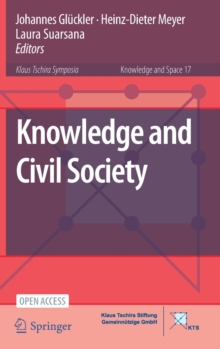
Knowledge and the Economy PDF
Edited by Peter Meusburger, Johannes Gluckler, Martina Meskioui
Part of the Knowledge and Space series
Description
The broad spectrum of topics surrounding what is termed the 'knowledge economy' has attracted increasing attention from the scientific community in recent years. The nature of knowledge-intensive industries, the spatiality of knowledge, the role of proximity and distance in generating functional knowledge, the transfer of knowledge via networks, and the complex interplay between knowledge, location and economic development are all live academic issues. This book, the fifth volume in Springer's Knowledge and Space series, focuses on the last of these: the multiple relationships between knowledge, the economy, and space. It reflects the conceptual and methodological multidisciplinarity emerging from this scholarship, yet where there has up to now been a notable lack of communication between some of the contributing disciplines, resulting in lexical and other confusions, this volume brings concord and to foster interdisciplinarity. These complications have been especially evident in our understanding of the spatiality of knowledge, the part that spatial contexts play in knowledge creation and diffusion, and the relevance of face-to-face contacts, all of which are addressed in these pages.
The material here is grouped into four sections-knowledge creation and economy, knowledge and economic development, knowledge and networks, and knowledge and clusters. It assembles new concepts and original empirical research from geography, economics, sociology, international business relations, and management. The book addresses a varied audience interested in the historical and spatial foundations of the knowledge economy and is intended to bridge some of the gaps between the differing approaches to research on knowledge, the economy, and space.
Information
-
Download - Immediately Available
- Format:PDF
- Publisher:Springer Netherlands
- Publication Date:23/05/2013
- Category:
- ISBN:9789400761315
Information
-
Download - Immediately Available
- Format:PDF
- Publisher:Springer Netherlands
- Publication Date:23/05/2013
- Category:
- ISBN:9789400761315










